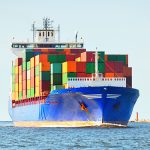The key message that echoed across the discussions was that the maritime sector must not lose the determination to face long-term challenges despite current uncertainties.
“Braving the rough seas facing the maritime industry will require unprecedented levels of collaboration. To succeed, the maritime industry will need to broaden its circle of stakeholders to embrace new perspectives and ensure equity. It will require collective courage,” said Johannah Christensen, Chief Executive Officer of the Global Maritime Forum.
Time to move from ambition to action on shipping decarbonization
One of the focal points of the discussions was the need to fully decarbonize the maritime industry by 2050. Participants saw great promise in establishing Green Corridors to accelerate the introduction of green ships and fuels.
Key areas identified for further action:
- Potential new ownership models of ships
- Public and private support for Green Corridors
- Ammonia safety demonstrations
- Coordinated planning and implementation of Green Corridors
The participants stressed the crucial role of policy to enable the transition, and they suggested a basket of policy measures to reach zero emissions by 2050, including a carbon tax, a ban on new fossil-fuelled vessels by 2035, and a fuel emission standard.
After the Annual Summit, a group of participants released an eight-page insight brief detailing their recommendations for key actions at the IMO, including setting clear 1.5 degrees Celsius-aligned interim targets for GHG emissions reduction.
Executives also highlighted the potential of operational efficiency measures that can be taken in the short term. A taskforce, convened by the Global Maritime Forum, will explore short-term actions to reduce shipping emissions to follow up on these discussions.
“We need to start making people aware of the potential of short-term action to reduce emissions. Let’s not forget we’re talking about 20-25% savings. That’s 200 million tons of CO2 in the atmosphere that we can save. If people don’t want to do it for the planet, they can do it for their wallet,” said Hugo De Stoop, CEO, Euronav during the Annual Summit’s closing plenary.
Without the right talent, challenges will remain unsurmountable
Issues related to human sustainability were also prominent in the discussions because global competition for talent is increasing. To make the maritime industry more attractive and able to take on future challenges, maritime leaders suggested investing in education, better communication of the role the maritime industry and maritime workers play in global trade as well as improving diversity and inclusion to broaden the talent pool.
“The ‘s’ [in ESG] is where it all happens. We all have to agree on what kind of people, how we’re going to get them and what it is going to cost to ensure that we have the right people today while thinking of 5, 10, 15, 20 years from now,” said Gerardo Borromeo, Vice Chairman and CEO, Philippine Transmarine Carriers.
On the side-lines of the meeting, members of the All Aboard Alliance for a Diverse, Equitable, and Inclusive Maritime Industry decided to officially establish two workstreams. One of these will focus on how the maritime sector can work together to develop indicators that help increase diversity in leadership positions. The other will be dedicated to exploring how conditions and culture aboard ships can be made more attractive for female seafarers.
Uncertainty clouds the future of global trade
In the face of a changing geopolitical landscape and continued supply chain disruptions due to COVID-19, participants saw uncertainty in the future of global seaborne trade. To protect its benefits as a driver of globalization and economic development, they suggested labelling certain essential goods as a global public good. This area is being explored further to identify potential opportunities for collective action.
The Global Maritime Forum’s Annual Summit 2023 will take place in Athens on 18-19 October 2023.
Source: Hellenic Shipping News





